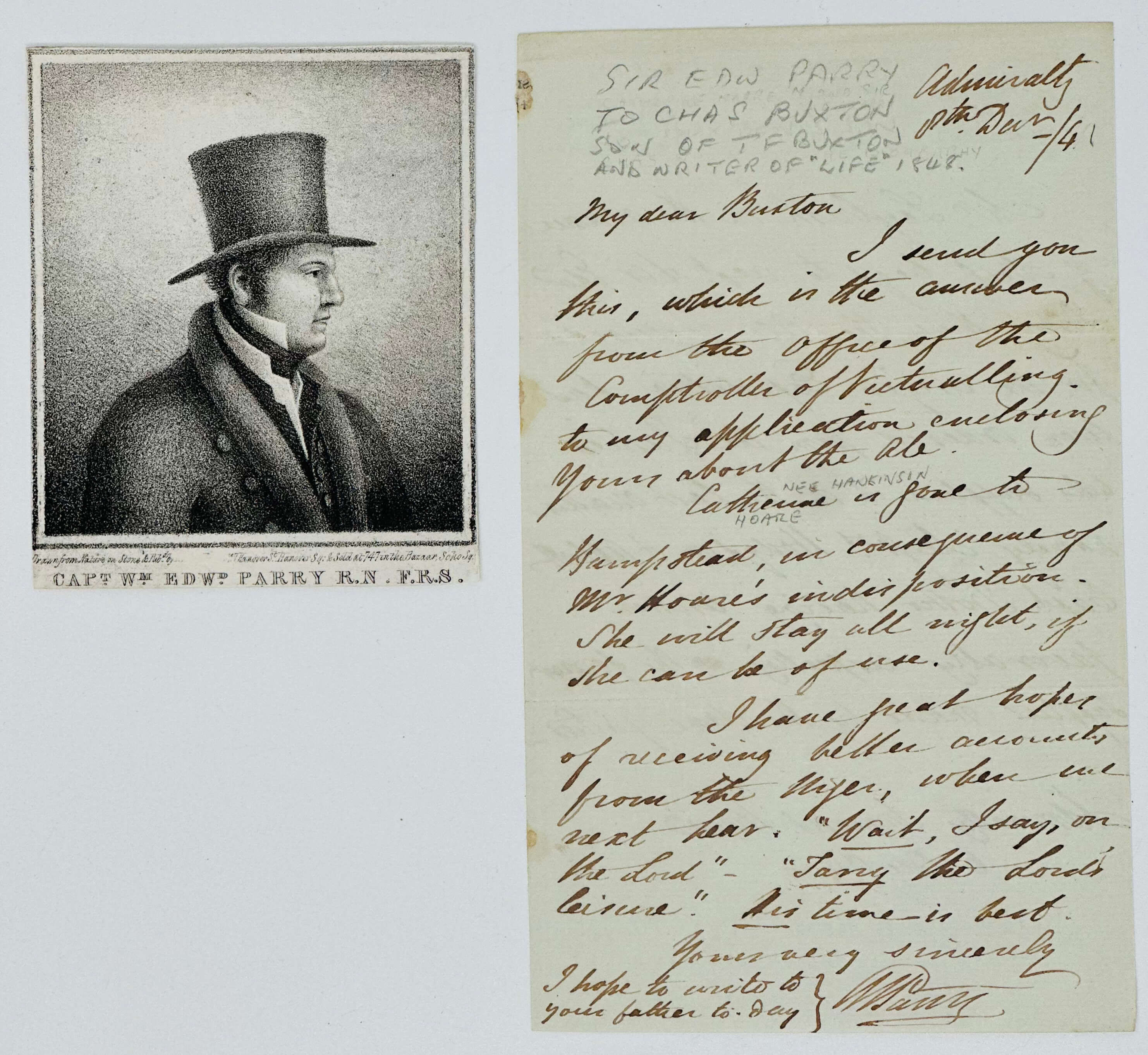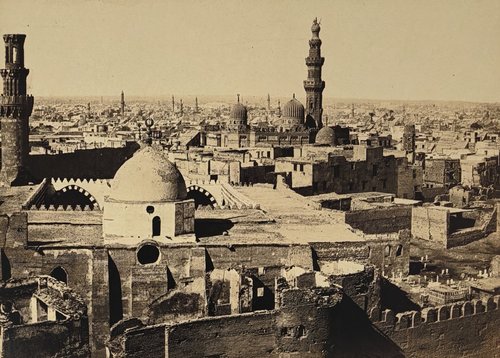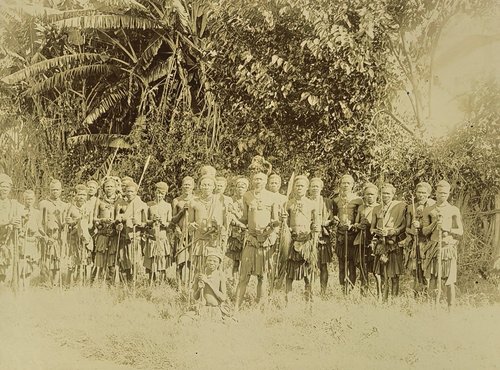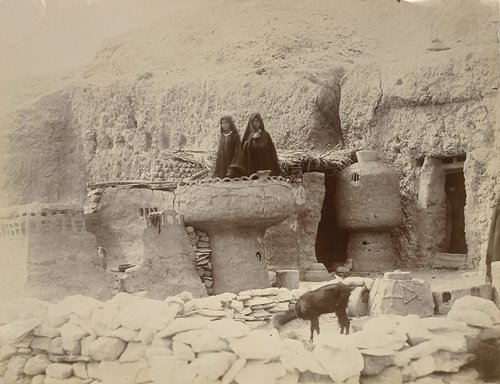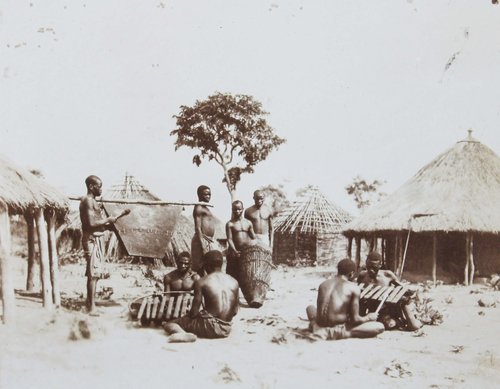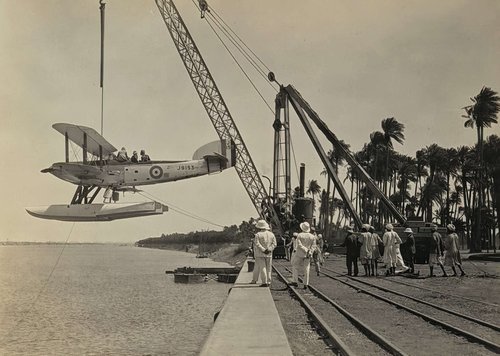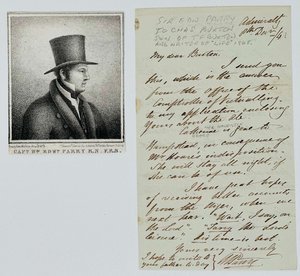
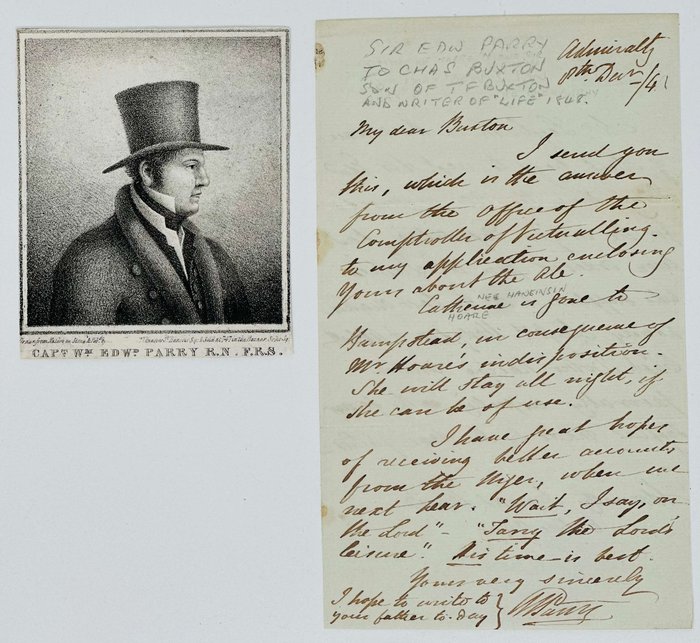
#MB74
1841
Small Octavo (ca. 17,5x10,5 cm). 1 p. Brown ink on watermarked laid paper. Written on verso of the official note from the Controller of Victualling Department of the Royal Navy, dated “Admiralty, Somerset House, 6 December 1841”. Paper aged toned, mild fold marks, otherwise a very good letter. Portrait: lithograph on paper, ca. 1830-s, ca. 9,5x7,5 cm; lithographed titled and printer’s address on the lower margin.
An interesting item of the Niger Expedition 1841-1842, this letter from the famous Arctic explorer Sir Edward Parry, was written when he was a high ranking Admiralty official. The letter is addressed to Charles Buxton (1823-1871), English brewer, philanthropist, and Member of Parliament, the letter concerns the ale supplies for the participating steamers. It was Charles’ father, Sir Thomas Fowell Buxton (1786–1845), a noted British politician and abolitionist, who was the initiator of the expedition.
Parry forwards Buxton the official answer from the Royal Navy “Controller of Victualling” which says that “the Ale required for the Niger Expedition has been ordered from the Parties who supplied it on the last occasion, namely Mr.s Hodgson & Abbott, Captain Trotter having written favorably respecting the former supplies made by the same parties” [Henry Dundas Trotter (1802-1859) – the commander of the Niger Expedition]. Parry further notes “I have great hopes of receiving better accounts from the Niger, when we next hear <…> I hope to write to your father today”.
“The Niger expedition of 1841 was a largely unsuccessful journey in 1841 and 1842 of three British iron steam vessels to Lokoja, at the confluence of the Niger River and Benue River, in what is now Nigeria. It was mounted by British missionary and activist groups, with the backing of the British government. The crews of the boats suffered a high mortality from disease” (Wikipedia).
“In mid-August 1841 the expedition entered one of the mouths of the Niger. Early in October the last of its ships was limping back, its commander prostrated by fever, the cabins crammed with sick and dying, the geologist working the engines with the aid of a textbook. Those seven weeks cost forty-one European lives” (Dictionary of African Christian Biography on-line).

